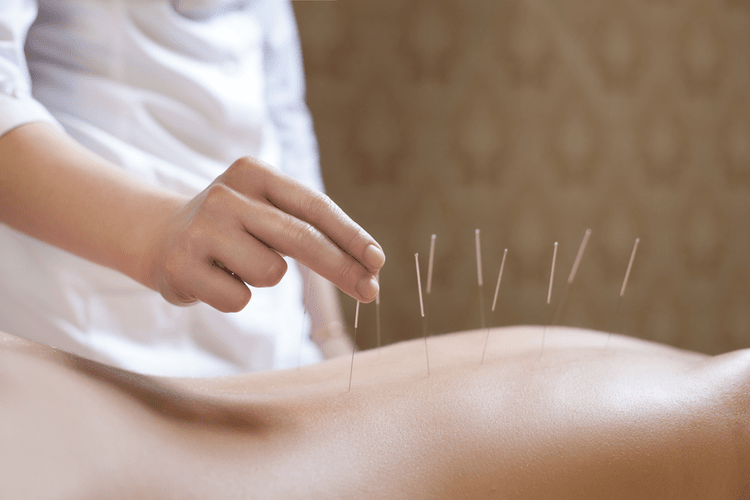Long-term recovery requires consistent attention, support, and relapse prevention planning. Involving loved ones in family therapyor couples therapyimproves communication and trust. These sessions address underlying issues and promote shared recovery goals. Guilt, shame, fear, and failure are emotions that can weaken sobriety. Learning copingmechanisms through therapyhelps manage these feelings without turning to alcoholor drugs. Discover outpatient addiction treatment programs designed to support your recovery at home.
Contenido
Build Better Health Habits
- Practicing mindfulness not only aids in emotional regulation but also helps individuals manage stress effectively, a common trigger for relapse.
- Setting realistic and achievable goals is crucial in the journey of relapse prevention.
- Maintaining a relapse prevention plan involves regular reviews to assess its effectiveness.
Effective coping strategies, such as deep breathing, mindfulness, and grounding techniques, help regulate emotions and provide a healthier alternative to substance use. These tools allow individuals to face emotional distress with a calm and clear mindset, rather than resorting to escapism. Relapse prevention skills are essential for maintaining sobriety and building a meaningful life after addiction.
Westwind Recovery®
Tracking progress and celebrating successes reinforces motivation while adapting the plan ensures it meets current needs. Incorporating feedback from trusted friends, family, or support group members is essential. Their perspectives can help identify areas needing improvement and new strategies to incorporate into your plan. Engage with your support network regularly to discuss changes in your circumstances and receive guidance. Celebrations can take various forms, from marking sober anniversaries to recognizing improvements in personal relationships or well-being. These celebrations serve as reminders of the progress made and the possibilities that lie ahead.
Building a support system
- By incorporating exercise into their daily routine, individuals in recovery can experience increased energy levels, improved sleep patterns, and enhanced self-esteem.
- In bargaining, individuals start to think of scenarios in which it would be acceptable to use.
- These 10 essential skills form a foundation of strength, structure, and self-trust.
- This knowledge can then be used as a learning experience toward improved understanding and skills for relapse prevention in the future.
But in the repair stage of recovery, it is not unusual for individuals to feel worse temporarily. They must confront the damage caused by addiction to their relationships, employment, finances, and self-esteem. They must also overcome the guilt and negative self-labeling that evolved during addiction. Clients sometimes think that they have been so damaged by their addiction that they cannot experience joy, feel confident, or http://gearscraft.com/rafaqat/?p=2264 have healthy relationships 9.
Self-Compassion and Resilience During Recovery
- For those times when we find ourselves alone, we need to have a plan.
- Keeping a journal to track these triggers and developing coping strategies, such as avoiding certain environments or practicing mindfulness, can help in managing them effectively.
- These choices have been shown to reduce stress levels, improve mental health, and increase resilience.
- A simple test of whether a person is bending the rules is if they look for loopholes in recovery.
- Everyone will have different emotions that cause their substance use.
Finally, physical relapse Drug rehabilitation occurs, where the individual yields to the overwhelming urge to use substances, despite their best intentions. A relapse prevention plan can be broken down into small, manageable steps. You can begin each day with a consistent morning routine that includes healthy, pro-recovery activities such as meditation, reading, exercising, or journaling.

Continuing to participate in support groups, counseling or other recovery-focused activities strengthens one’s commitment and fosters a sense of community with others who share similar experiences. Understanding early warning signs of relapse improves readiness and the ability to respond proactively, instrumental in long-term success. By combining these strategies, individuals can create a robust structure for navigating the complexities of recovery, ensuring they remain on track despite challenges. We believe that by arming yourself with the right tools and knowledge, you can navigate the challenges of recovery with confidence and resilience. One particularly notable innovation to the Relapse Prevention (RP) model is Mindfulness-Based Relapse Prevention (MBRP).
Adopting a healthy lifestyle, including proper nutrition, regular exercise, and adequate sleep, can significantly contribute to relapse prevention. These lifestyle changes help regulate mood, reduce stress, and improve overall well-being. Start equipping yourself with the knowledge and tools necessary to maintain a lasting recovery. Join us as we explore the world of relapse prevention and empower individuals to break free from the grips of addiction. If addiction treatment is about getting sober, recovery is about learning how to stay sober.
Emotional Relapse
Moreover, staying connected helps individuals stay accountable to relapse prevention skills their recovery goals, as they are more likely to seek help and support when facing triggers or temptations. Managing stress is one of the most important relapse-prevention skills a person can have. It’s best to find effective ways to manage stress without turning to substances. Whether it’s through relaxation techniques, therapy, or engaging in enjoyable activities, prioritizing stress management is key. Remind yourself of your progress, strengths, and the reasons why you chose to pursue sobriety in the first place.
They are not one-size-fits-all, but they are simple enough for daily life. Relaxation techniques such as guided imagery, progressive muscle relaxation, and controlled breathing calm the mind. These methods can be practiced daily as part of a relapse prevention plan.

Understanding Relapse and Its Stages
Relapse prevention planning helps maintain long-term recovery by identifying potential triggers and creating actionable responses. This approach strengthens recovery for substance use disorders, behavioral addictions, mental health concerns, and other conditions. The clinicians should support the patients attempts at recovery regardless of how many times they tried in the past (and relapsed). Because addiction is a chronic relapsing disease, relapse can occur, though, at any time in the recovery processsome people relapse after having been in recovery for years.
Building a Strong Support System
Incorporating mindfulness and gratitude practices into your daily life can have a profound impact on your mental well-being and overall recovery journey. Mindfulness-based relapse prevention techniques promote self-awareness and help individuals to accept cravings rather than battling them. By practicing mindfulness, you can develop the ability to observe your thoughts and emotions without judgment, allowing you to respond to cravings and triggers more effectively. While coping skills are essential for relapse prevention, they aren’t always easy to master on your own. Professional support from therapists, counselors, or addiction specialists plays a vital role in helping individuals develop and refine these skills.
Beyond building a strong foundation, individuals must develop essential coping skills to effectively prevent relapse. These coping skills can help manage triggers, reduce stress, and make healthier choices moving forward. In the long term, coping skills contribute to an overall healthier, more balanced lifestyle. Recovery is about more than just staying sober—it’s about cultivating a life of wellness and personal growth.
